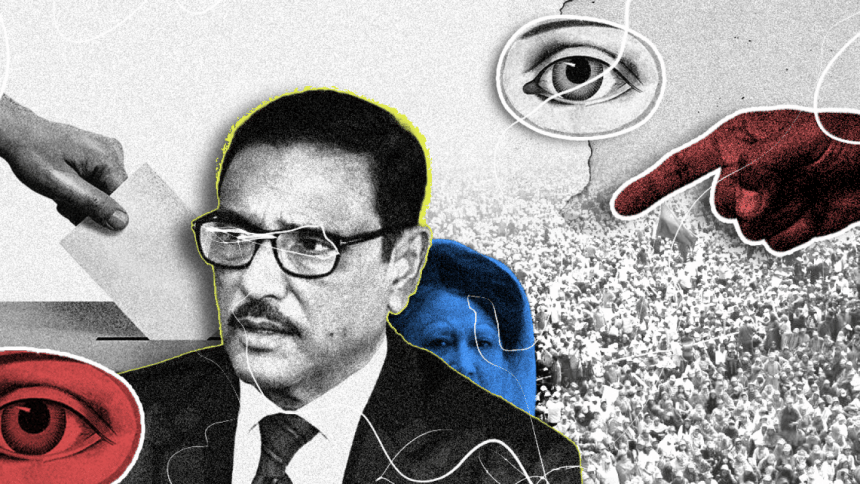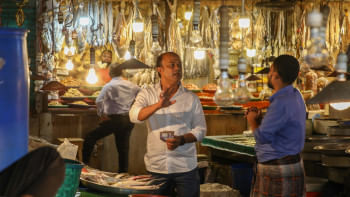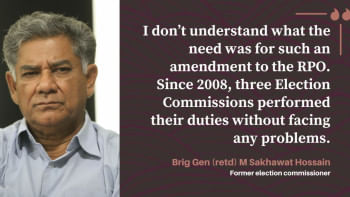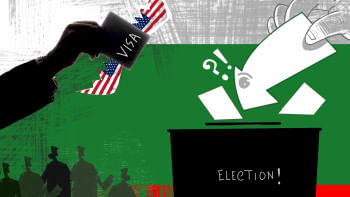Column by Mahfuz Anam: 'Secret deal has been struck, nothing to worry about'

In a democracy, the heads of the government – both presidents and prime ministers – are the subjects of the most media coverage and the targets of most of its criticism. In Bangladesh's case, while the former is more than true, the latter is non-existent. Such is the state of our press freedom. What makes this phenomenon more disheartening is that there is no law that says the media cannot criticise the PM. Still, we have enchained ourselves to self-censorship, perhaps subconsciously remembering what Idi Amin once said when asked about press freedom in his country, "There is freedom of speech, but I cannot guarantee freedom after speech."
The promptness and severity with which some social media critics of our PM have been jailed has created an atmosphere of intimidation. The existence of laws like the ICT, DSA, CSA, etc, the misuse of defamation and other laws, and the collective demonisation of independent media by the pulpits of power and their cacophonous resonance from a domesticated media have taught us better.
It is against this backdrop that we raise a question about a remark made by the prime minister, last Tuesday, about the BNP chief's treatment abroad. Our PM said, "…she is 80 years old, at this age death is imminent; and she is also sick, so why this hullabaloo? No amount of crying will help this situation…" (own translation from the original in Bangla).
By this, did the PM mean that, as Khaleda Zia is 80 years old, we should stand back and see her wither away? Don't we believe that it is the Almighty who decides when a person's time comes to make the Eternal Journey? Is it not the practice in every country, culture and religion to extend all possible help to save a person's life? Whether a person will live beyond 80 or not is not our decision to make. Our duty is to try our best and do everything in our power to save the person's life. That's what civilisation is all about. One may have hundreds of reasons to despise their opponent, but such public comments can only further fuel hatred.
Our PM made another statement on Monday, in which she said, "Democracy must continue in Bangladesh at any cost. In no way should the undemocratic forces assume power."
We support her wholeheartedly on this score. It is a point of Bangladesh's pride that, however flawed it may be, we continue to practise democracy and have made significant economic progress while remaining within its broad framework. But is the PM's government and her party working to strengthen it? Did her continuous rule for the past 15 years – 20 years if we count her first term – enjoying unrivalled power and undisturbed tenure (no hartals or disruptions) – consolidate democracy? Did this unfettered rule, never before enjoyed by any other party or even military dictator, strengthen any of the institutions of democracy, such as the parliament, judiciary, media and statutory bodies, that ensure accountability and rights?
While the PM reiterated her commitment to democracy, her party's secretary general and roads and transport minister, Obaidul Quader, remarked in a public meeting on Tuesday, "Where is the sanction? Where is the visa policy? Secret negotiations have been completed so there is nothing to worry about." "Sanction" and "visa policy" point to the secret negotiations with the US. He further said, "The US needs Delhi. Delhi is there, we are there." This implies that the second party in the secret deal must be India. So, according to the secretary general of the ruling party, a secret deal has been worked out with the US and India so that the AL will have "nothing to worry about."
This implies, based on the words of the ruling party secretary general, as Delhi supports it, AL will continue to be in power. What else can "nothing to worry about" mean? And what does this say about our sovereignty and dignity as a country and a people? About the independence of our government, since its continuance in power is apparently determined by our neighbour? What does this say about the relevance of our elections?
Where does all this leave us, the voters? In the 2014 election, 153 MPs were elected uncontested. For a house of 300 MPs, that meant that a majority was attained to form the next government without a single vote being cast. Then, in 2018, voting took place the night before. And this time around, the "result" of the election is being "negotiated" with external powers. Is that how democracy works these days in Bangladesh? Is that what the AL secretary general is referring to when he says "khela hobe (the game is on)"? It seems our election is all set to be an example of "match-fixing" rather than of "fair play."
Election season in a democracy is when power changes hands from the government to the people. Theoretically, it is an occasion when the people once again feel empowered. Tragically, this is not the case for Bangladesh.
If we analyse how the government is oppressing the opposition under a legal guise, it becomes evident that the "level playing field" does not exist for them. Whatever other records this government may have set, nothing compares to the use of court cases to victimise the opposition. According to sources at the BNP office, around 1.12 lakh cases have been filed implicating 39.78 lakh BNP leaders and activists since 2009. In addition, there are "unnamed accused" whose number exceeds those of the named. (The latter category is used by police to implicate anybody at whatever stage of an investigation, to extort bribes.) Even if we disregard 50 percent of these – taking into account possible exaggeration – nothing can explain this amount of lawsuits except political victimisation.
According to a September 20 report by Prothom Alo, Habib un Nabi, joint secretary general of BNP, has 450 cases against him; Saiful Alam, past president of Jubo Dal, has 350 cases against him; Jahangir Hossain, leader of the youth wing of BNP, faces 317 cases; Sultan Salahuddin, president of Jubo Dal, has 315 cases against him; Amanullah Aman, adviser to the BNP chairperson, is facing 250 cases; and 180 cases have been made against Senior Joint Secretary General Ruhul Kabir Rizvi. Most senior members of BNP's highest decision-making body – the standing committee – have cases against them. There are many others who have more than 150 cases against each of them. Mirza Fakhrul Islam Alamgir, secretary general of BNP, has 98 cases filed against him. A senior female leader, Selina Rahman, who is more than 80 years old, has four cases against her, one of which is for arson – specifically for setting fire to a bus. Appearing in court for each case can easily take up the whole year. Most of these cases are 5-10 years old and have remained dormant for most of the ruling party's tenure. Now that the election is approaching, suddenly, these cases are acquiring a new life, with police becoming too eager to "serve the law."
We don't need any other statistic but the above example of cases against the biggest opposition to prove that all claims by the government and Awami League about holding a free and fair election is far from credible.
Our chief election commissioner (CEC) said on Wednesday that he is not worried about the "legitimacy" of the elections and is determined to hold "a lawful election." That is precisely what we are afraid of. Again, in 2014, as many as 153 MPs were "elected" uncontested. These so-called elections were legally "correct." But were they morally and ethically so? Was it an exercise in democracy? How do you think 4,80,21,983 voters out of a total of 9,19,65,167 felt when they could not cast their votes, for which they had waited five years?
Yes, we must have a "lawful election," but it must also be a "credible election" – credible to the voters and not simply to the winning party. By far, the most important aspect of an election is the "free and unfettered expression of the public will." Ensuring this is the most important task of the Election Commission, not only the formal compliance with the law. The CEC must be conscious of democratic, moral and ethical aspects of an election, not just the legal ones.
Mahfuz Anam is the editor and publisher of The Daily Star.
Follow The Daily Star Opinion on Facebook for the latest opinions, commentaries and analyses by experts and professionals. To contribute your article or letter to The Daily Star Opinion, see our guidelines for submission.

 For all latest news, follow The Daily Star's Google News channel.
For all latest news, follow The Daily Star's Google News channel. 









Comments